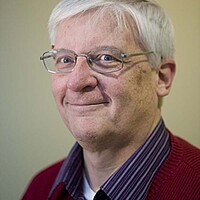Francis Slakey moves from scaling heights to greening cities
Loading...
Francis Slakey has climbed the world's tallest peaks and surfed its seven seas. But now he's set his sights on an even bigger goal: encouraging American cities to ramp down – way down – on their use of BTUs and kilowatt hours.
Dr. Slakey is executive director of the new Georgetown University Energy Prize, a $5 million prize that will be awarded to the US community of between 5,000 and 250,000 residents that shows the greatest ability to cut energy use.
"The goal is to transform the way America uses energy," Slakey says. Using quarterfinal, semifinal, and final rounds, he hopes to make the competition into "the Super Bowl of energy efficiency."
Slakey, who teaches physics at Georgetown in Washington D.C., has written a book ("To the Last Breath") about his other life as an athlete-adventurer. He is the first person to both reach the summit of the highest mountain on every continent and surf every ocean.
"There was a time in my life when all I cared about was climbing and surfing," he says in a recent telephone interview. But seeing the effects of climate change as he traveled began to redirect his life goals.
"I used to look at a map of the world, and I would just see places to conquer, mountains to climb and oceans to surf," he says. But "as a result of traveling around the world I came to realize there are global challenges out there. For me, as a physicist, it was the energy challenge that rose to the top of the list.... I came out of it deciding that I could actually contribute to the world in a more significant way."
In May 2012 he decided to host a brainstorming session at Georgetown on how to increase energy efficiency. The group could have moved in a variety of directions, such as asking for more government action. Instead, it proposed offering an energy prize to the cities who need the most help – smaller cities that have fewer resources but also are home to almost 70 percent of the US population.
Today (April 23) opens the official two-month period for cities to enter the contest. More than 50 already have, from Fremont, Calif., to Atlantic City, N.J. Some cities are coming to the contest wanting to address climate change, he says. But others simply want to save money on energy costs.
Oberlin, Ohio, has a green goal: It "has pledged that as a city they're going to try to be carbon neutral," Slakey says, while Fairbanks, Alaska, faces high energy costs and just wants to save money.
Addressing climate change or cutting energy costs "are both perfectly valid reasons" to enter the competition, he says.
How will the winner be determined? After a two-year competition the cities will be judged on their total electricity and natural gas usage per capita, adjusted for local climate. The final criteria also will consider what was done to engage community members and whether it can be replicated nationwide.
Slakey is reluctant to talk about specific steps cities might take to win the competition.
"We're expecting innovation … and it can come in a variety of ways," he says. Some cities might combine known energy-saving technologies in a novel way. Others might find new ways to finance energy efficiency in homes and businesses or new ways to persuade people to be more energy efficient.
"The excitement of the prize is in not knowing what the winner will look like," he says.
The $5 million figure came as a result of a suggestion from the mayor of Dubuque, Iowa.
"Make it a dollar figure that will be transformative for a community of my size," the mayor urged Slakey. While $5 million might not be a transformative amount for New York, Chicago, or Los Angeles, it can make a huge difference in a city the size of Dubuque, Slakey says.
Georgetown University is hosting the prize competition, but the prize money will come from a variety of other benefactors, some yet to be named. Slakey is confident that the funds will be raised. "I've been overwhelmed by the interest not only among the communities themselves but among the sponsors."
If they raise more than $5 million, Slakey says, "We'll have additional prize money attached to category winners," such as the best city at addressing the energy needs of low-income people. "That's a tough nut to crack for energy efficiency."
• To learn more visit www.guep.org or search @GUEnergyPrize on Twitter








